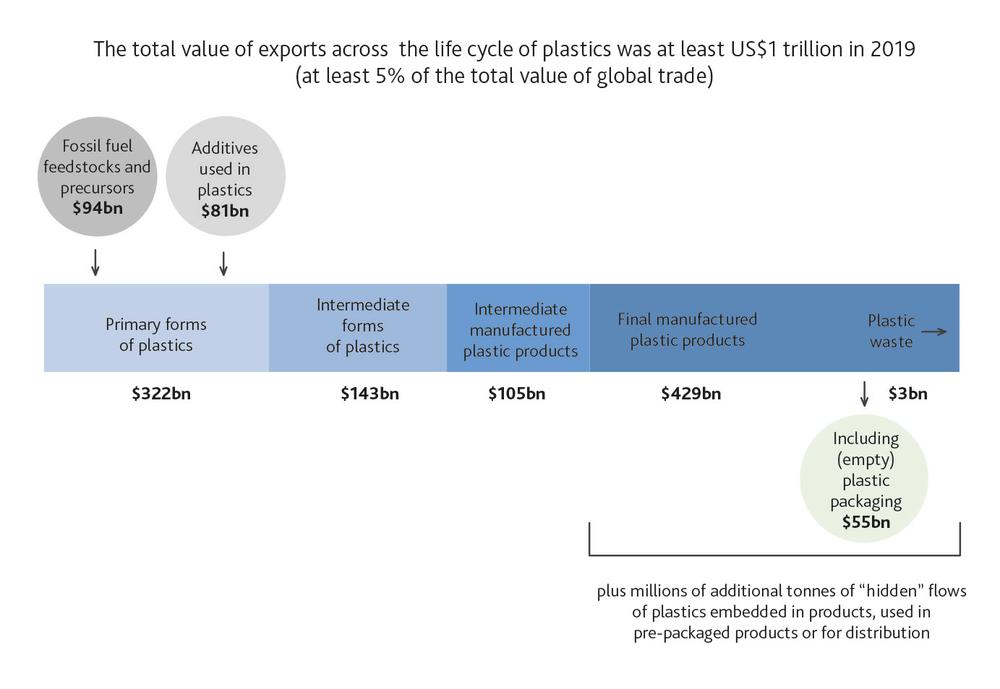To tackle the plastic pollution crisis, a growing number of countries are implementing policies to better regulate international trade in plastic waste and an array of plastic products and inputs. A critical missing piece for effective, evidence-based policymaking to tackle plastic pollution is reliable and disaggregated data on cross-border trade flows across the life cycle of plastics.
This policy brief identifies gaps and challenges in the World Custom Organization’s Harmonized Commodity Description and Coding System (HS) that are relevant to efforts to tackle plastic pollution. It then puts forward options for amending the HS that would facilitate monitoring and regulating trade flows across the life cycle of plastics. Drawing from the wide range of potential HS amendment options identified, the authors recommend a subset of options that could be pursued in the current 2022-2027 HS amendment cycle.
The policy brief—and the options identified for HS amendments—builds on joint research by UNCTAD and the Geneva Graduate Institute on trade flows across the life cycle of plastics. It aims to support dialogue on how international cooperation on trade policies could support efforts to tackle plastic pollution, including through negotiations for a new international legally binding instrument on plastic pollution, implementation of the Basel Convention “plastic waste amendments”, and the WTO Dialogue on Plastics Pollution.
The Value of Trade Across the Life Cycle of Plastics

A critical missing piece for effective, evidence-based policymaking to tackle plastic pollution is reliable and disaggregated data on cross-border trade flows across the life cycle of plastics. As the collection of trade data is underpinned by the World Customs Organization’s Harmonized System, this international nomenclature is an important starting point for a more granular picture of trade flows across the life cycle of plastics
Carla Vaca Eyzaguirre and Carolyn Deere Birkbeck
Recommended citation: Vaca Eyzaguirre, C. & Deere Birkbeck, C. (2022). Plastic pollution and trade across the life cycle of plastics: Options for amending the Harmonized System to improve transparency. Forum on Trade, Environment, & the SDGs (TESS).

